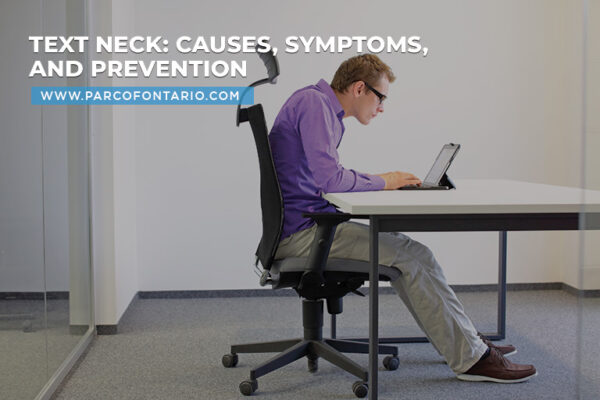
Text Neck: Causes, Symptoms, and Prevention
Many of us spend long hours hunching over our electronic mobile devices and laptops. As we spend more time texting, browsing social media, and reading on our devices, this constant downward gaze…
Read More
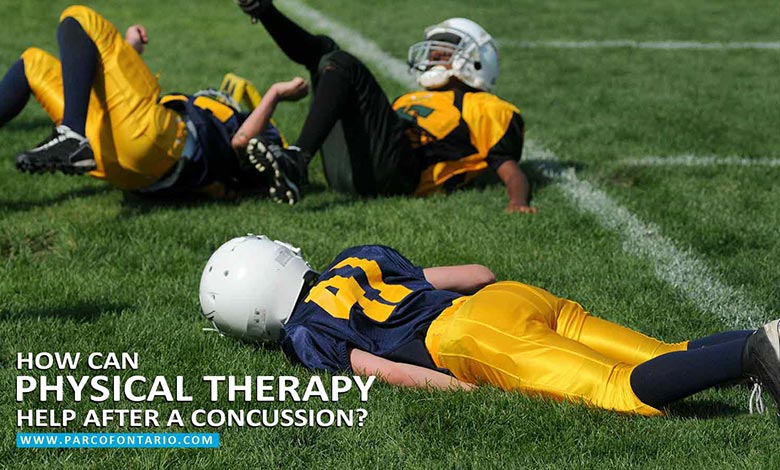
A concussion is a brain injury often caused by rapid movement or direct impact on the head. The shaking and hitting of the head can result in unpredictable trauma in the brain, affecting its chemistry and function. It has physical, cognitive, and behavioural repercussions. Depending on the area of the brain affected, the problem could be temporary or permanent.
Annually, there are about 200,000 reported cases of concussion in Canada, but this number could be higher as many can go unreported. A concussion is sometimes called an “invisible injury” because symptoms can be mild or not immediately perceptible. There is no single test that can objectively diagnose a concussion. A proper assessment by a health professional is necessary to determine and treat the injury.
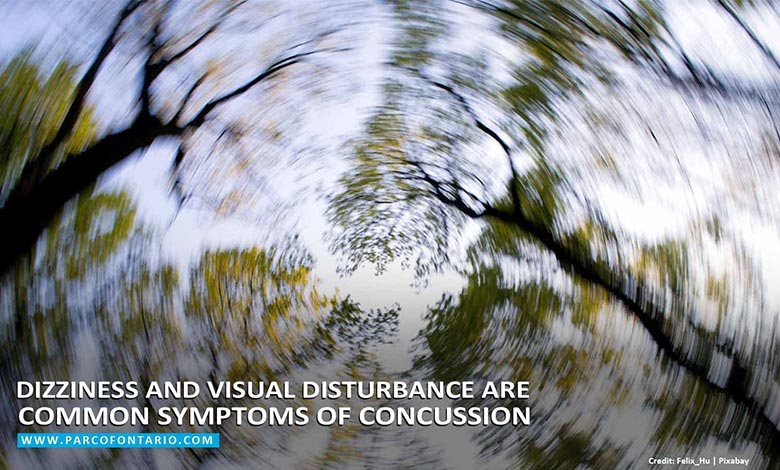
There are many signs and symptoms associated with a concussion. About 10% of concussions involve loss of consciousness. Some symptoms are short-term, while others can go on for months or years. Seeking medical treatment immediately after experiencing a head injury is crucial to minimizing the risks.
Physical symptoms of concussion include:
Cognitive symptoms include:
Emotional symptoms include:
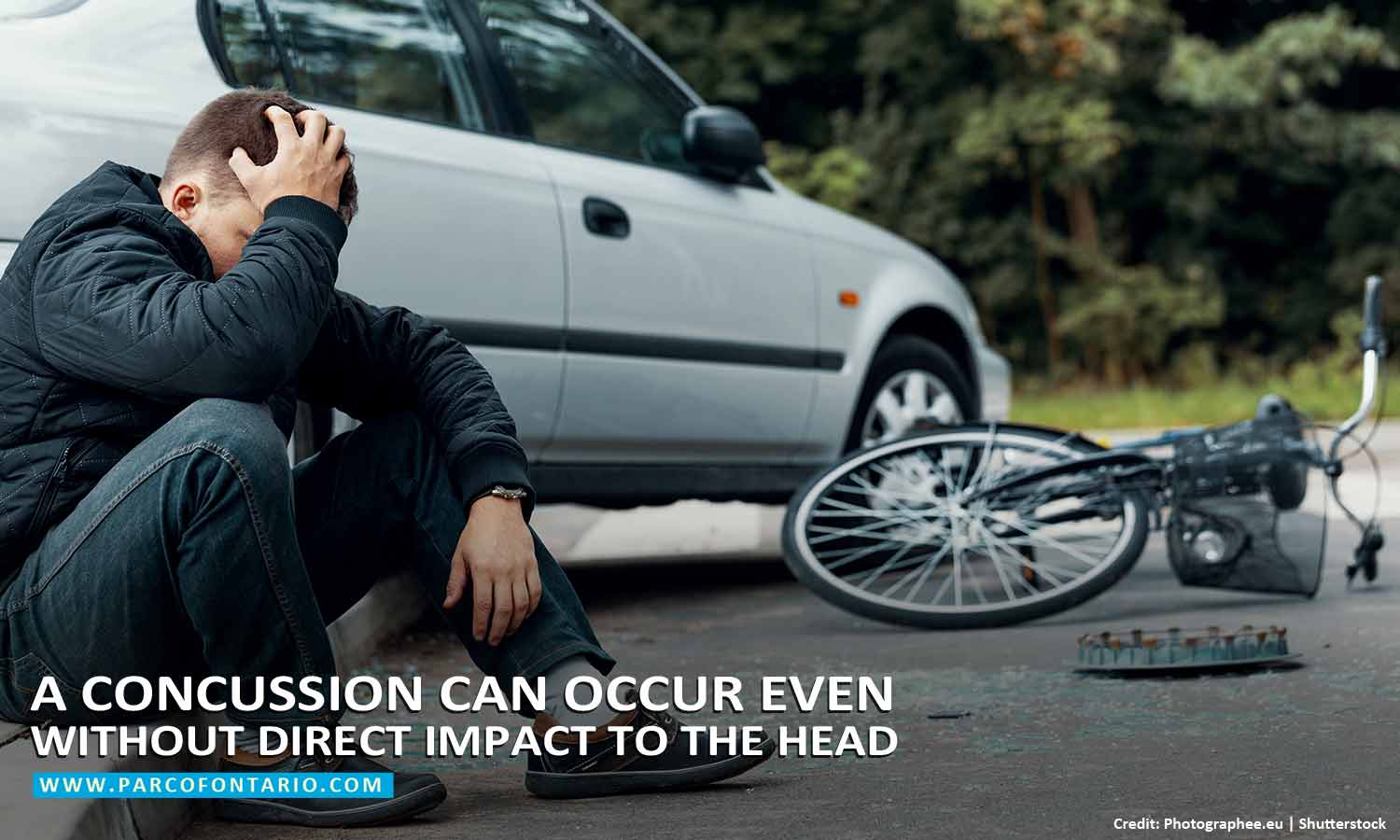
The idea that you can only get a concussion from hitting your head is false. A concussion can occur even without any direct impact on the head. Acceleration or deceleration to the head or neck, like a whiplash injury, can violently shake the brain inside the skull and damage the axons.
Concussions can occur at any age, but younger age, 12 to 24 years old, have a higher risk of injury. Higher risk factors are also found in women, athletes, and people with a history of concussion.
Other causes of concussion are:
Concussions may occur along with other injuries. Symptoms may be tolerable. Most concussions only last for 7 to 10 days. If symptoms persist, go to a medical professional, such as a physical therapist, nearest you as soon as possible.
A concussion can be diagnosed after careful testing. Physical therapists are trained to screen individuals for the presence or absence of symptoms, impairments, or functional limitations.
Your physical therapist will be asking multiple questions to understand the symptoms you have been experiencing and will conduct tests to check your muscle strength, coordination and balance, senses, and memory. They will examine your neurological, orthopedic, and cardiovascular systems to determine the best course of treatment for the particular symptoms.
Treatments may include:
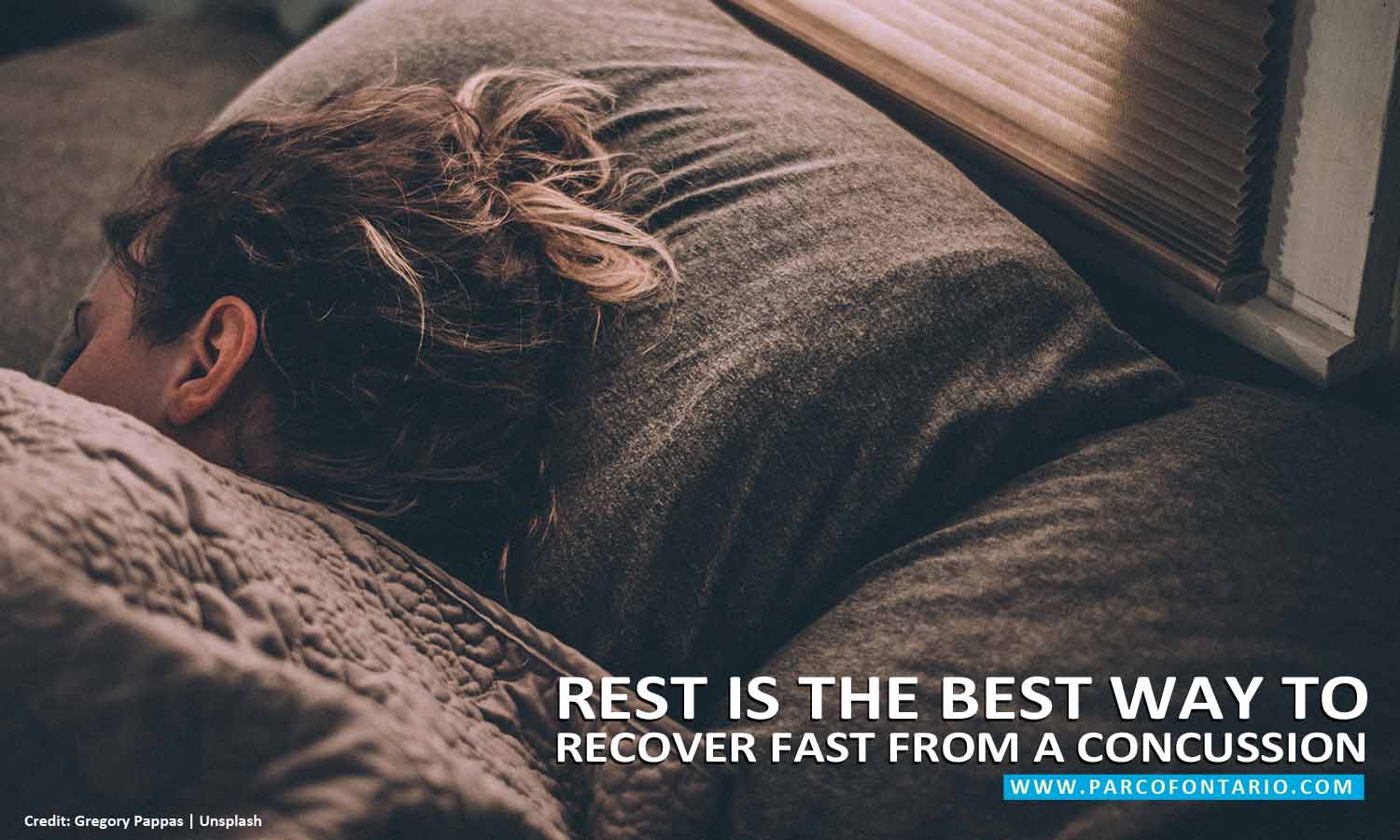
For most concussion symptoms, the best way to recovery is to rest. Even the slightest demand for your brain, like exercise, electronic use, reading, driving, or cooking, can trigger the symptoms.
Your physical therapist will advise you and your family on what kinds of activities you should limit until it is safe for you to return to them. They will prescribe a recovery program that will best accommodate your condition. Allowing your brain sufficient time to rest helps it heal and the symptoms clear up as fast as possible.
Extended physical and mental rest after a concussion can affect your muscle strength and physical endurance. Exercise intolerance or the decreased ability to perform normal physical exercises is common for elite-level athletes who have experienced concussion or brain injury.
Physical therapy can help you regain your strength and endurance while keeping your concussion symptoms at bay. A physical therapist will design a therapeutic exercise program to boost your stamina and closely monitor your condition and progress at the same time.
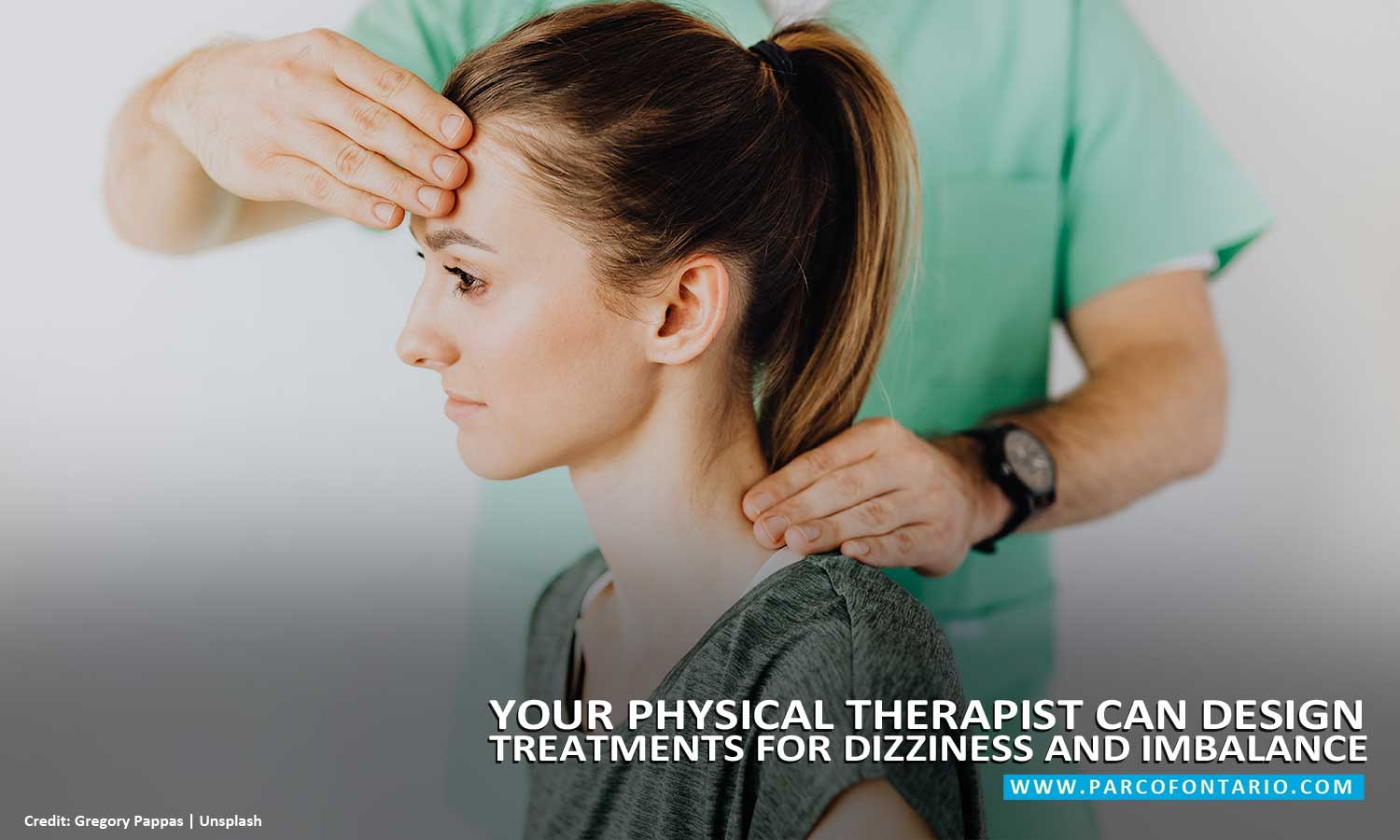
Dizziness, visual disturbance, and difficulty with balance and coordination is a common effect of concussion. Some people have to deal with it for a longer period. These problems can be detrimental to your quality of life and affect your daily routine. A type of physical therapy called vestibular physical therapy may help with this issue. It focuses on the vestibular system, the inner ear and its connections with the brain.
A vestibular physical therapist can design and teach special treatments or specific exercises you can do to assist your balance and reduce vertigo and dizziness.
There can be several different causes for your headache after a concussion. Your physical therapist will assess all possible reasons for the problem and prescribe treatments to eradicate them. These treatments can range from simple stretches, strength and motion exercises, or specialized massage to the use of technologies like electrical stimulation.
Seeking therapy for concussions can help you slowly ease back to your normal activity or sport. As your symptoms fade and you regain your normal strength and endurance, your physical therapist can gradually introduce regular activities into your daily routine, while avoiding overloading your brain and preventing symptoms from returning. This is crucial in the final stage of recovery since any sudden increase in activity level post-concussion can delay the healing of your brain tissues.
Working with a physical therapist can help you return to normal the fastest and safest way possible, without compromising your brain’s ability to heal properly.
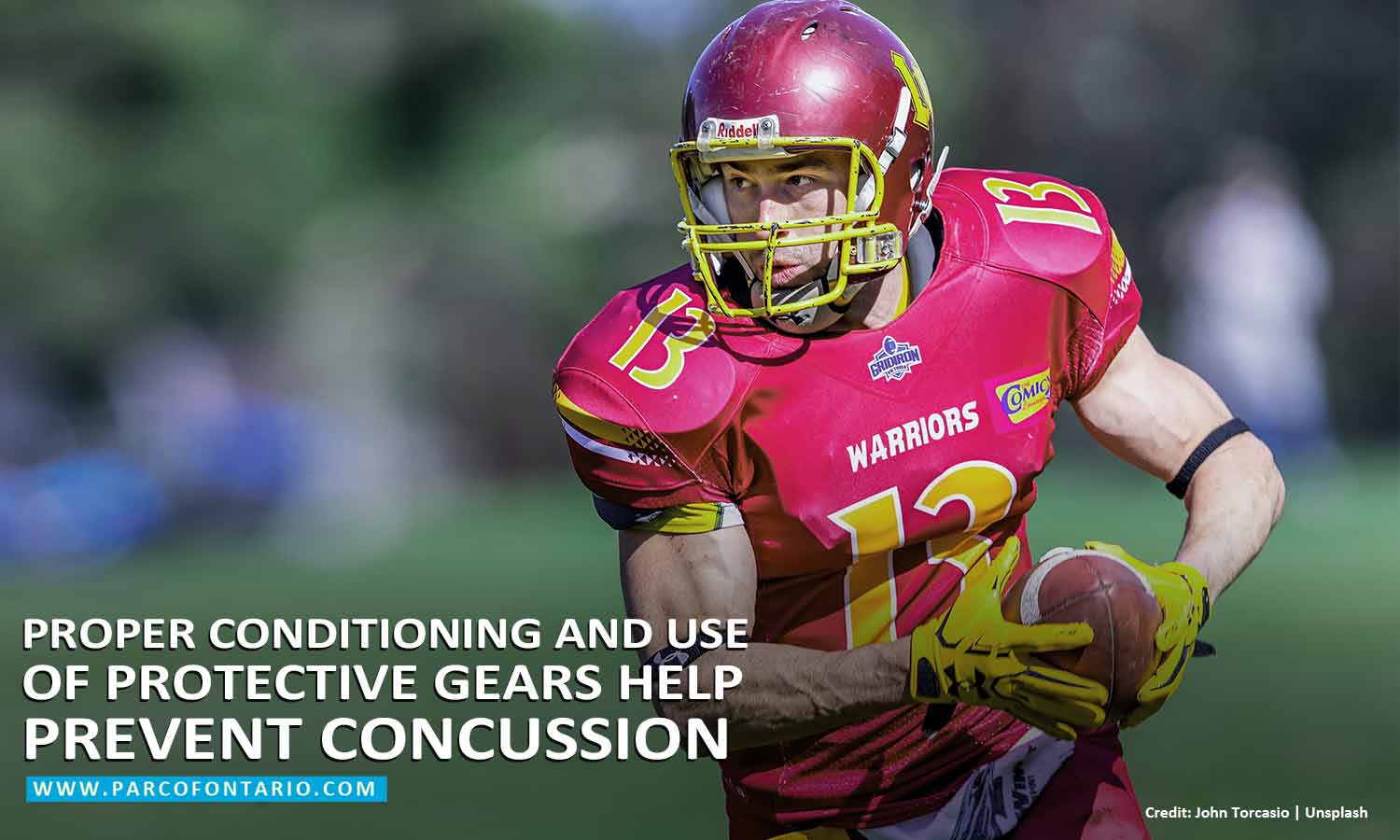
Having a history of concussion will only increase your risk of experiencing it once again. It is very important to prevent further injuries. The risk of concussion can be prevented with the following precautions:
Avoid driving aggressively. Always wear seatbelts. Follow the traffic rules and speed limits. Eliminate any driving distractions, such as eating or texting, and focus on the road. Make sure as well that your car has airbags and is in good working condition.
Going back to driving after an injury rehabilitation and recovery can be challenging. Taking a driver retraining program can also help you adapt to a new driving experience.
Sports activities are one of the main causes of concussions, so avoid engaging in risky sports behaviours and avoid or limit techniques that involve impacts the head. Wear proper protective gear like helmets, eye protection, and mouthguards. It also helps to exercise regularly to strengthen neck muscles, allowing them to absorb the impacts of blows to the head and reduce the risk of concussion.
Prevent falling by putting handrails or grab bars. Slippery surfaces can also benefit from nonslip mats or carpets. Clear objects along your walking path at home to decrease the risk of falling. Make sure as well that your surroundings are well-lit.
Concussions are a serious injury and must be treated as such. It can have severe, long-term implications for your brain. If you’ve sustained a head injury, seek medical help immediately.
All physical therapists are prepared for any conditions or injuries and are certainly experienced to treat post-concussion problems. Consider concussion physiotherapy and management to help your treatment and rehabilitation.
If you are living in Ontario and searching for “physical therapy near me,” Physiotherapy and Rehabilitation Centres of Ontario has 6 locations in the province.
Book an appointment now and call us at our clinic nearest you: